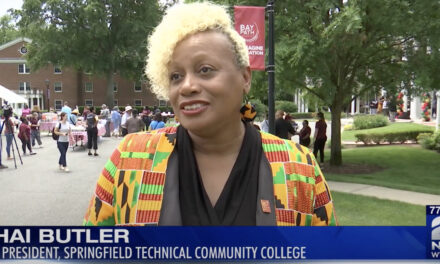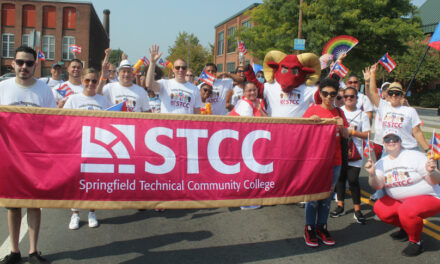On April 28th, 2020 STCC hosted a virtual keynote speaker, Rosalia Rivera, for a timely and relevant presentation called “Building Consent Culture Online.” The event, held in recognition of National Sexual Assault Awareness Month, aimed to help empower students, faculty, and staff with tools for safely navigating increased social connections in the online environment. The keynote was recorded, and can be viewed below.
I will never judge you.
Rosalia Rivera, STCC Virtual Keynote, “Building Consent Culture Online”
I will always believe you.
I can help you find support.
It is never your fault.
Rosalia is the host of AboutCONSENT™, a podcast for survivors of sexual and relationship violence, and those who support them. She is also the founder of CONSENTparenting™, an online platform for adult CSA* survivors who are now parents to learn how to protect their families from abuse. As a survivor turned thriver, Rosalia’s mission is focused on helping parents and caregivers empower their children through consent education, helping survivors of childhood sexual trauma reclaim their voice, and dismantling shame around sexuality through education and awareness.
Rosalia’s keynote opened by telling the compelling story of Alicia Kozakiewicz, who at the age of 13, was the victim of a childhood abduction by an online predator who had led her to believe he was a 13 year old just like her. After riveting attendees to our virtual seats with this story, Rosalia brought us full circle: Alicia’s experience took place in 2002, at the beginning of our great human experiment of finding social connection online. Now, in 2020, with the unfolding COVID-19 pandemic, the challenges of staying safe and protecting our children as we navigate the online world are even more complex.
Rosalia shared clear information regarding who may be most vulnerable to online predators, as well as how online predators behave, and the grooming process itself. For example, online predators often target people who are already socially, economically, or racially marginalized: young people, immigrants, people of color, and members of the LGBTQ community. The grooming process can develop over the process of months, with a predator finding ways to get “close” to a victim by building trust, and offering support as the victim goes through hard times with parents or friends. Once trust is established, the predator may ask for a favor — such as asking the victim to send a sexual picture, often manipulating the victim into feeling like they have no choice but to do what is being asked of them. And always, always, predators play upon the victim’s sense of shame to keep them entrapped within the abuse.
Rosalia offered practical advice around prevention, with a special focus on how parents can develop media literacy and critical thinking with their children. As adults, modeling is key — if we want our children to not share too much online, it is up to us to not overshare online about ourselves or our children. Rosalia suggests that before sharing online, ask yourself, “What am I sharing, and why am I sharing it?” Age-appropriate conversations with young kids can use the idea of “tricky people,” and offer examples from popular movies, where a character started off pretending to be good, only to be shown to be up to no good in the end.
At the close of her presentation, Rosalia shared a call to action for each and every one of us. The first step to keeping ourselves, our families, and our friends safe, is simple: start the conversation. By simply acknowledging that online abuse exists, and sharing that we will believe our family members and friends who may be impacted by it, we can help to build consent culture and create relationships where survivors will be more likely to seek support. When we normalize this conversation, and talk about issues of sexual and relationship violence openly, we can help lessen the power of shame that often keeps survivors silent.
Rosalia’s words can serve as our guide for bringing this conversation to our families and friends, as one small but significant action toward creating a culture of safety and consent.
Take pause for a moment. Pick up the phone. Who will you say these words to today?
“I will never judge you.
I will always believe you.
I can help you find support.
It is never your fault.”
Cindy Breunig is the Violence Prevention Coordinator at STCC. Her work is supported by STCC’s Department of Justice Office of Violence Against Women (OVW) Campus Program Grant. This grant seeks to strengthen both response to and prevention of sexual assault, dating/domestic violence and stalking for students, faculty and staff in the STCC community.
The Virtual Keynote, “Building Consent Culture Online” forms a part of the ongoing prevention initiatives supported by the (OVW) Campus Program Grant. The event was cosponsored by the Be Empowered Project, Title IX, the Office of Multicultural Affairs, and the Hispanic Association of Higher Education.
You are not alone. Resources for domestic and dating violence, sexual assault and stalking continue to be offered during the COVID-19 pandemic. Find these resources on the STCC website.





